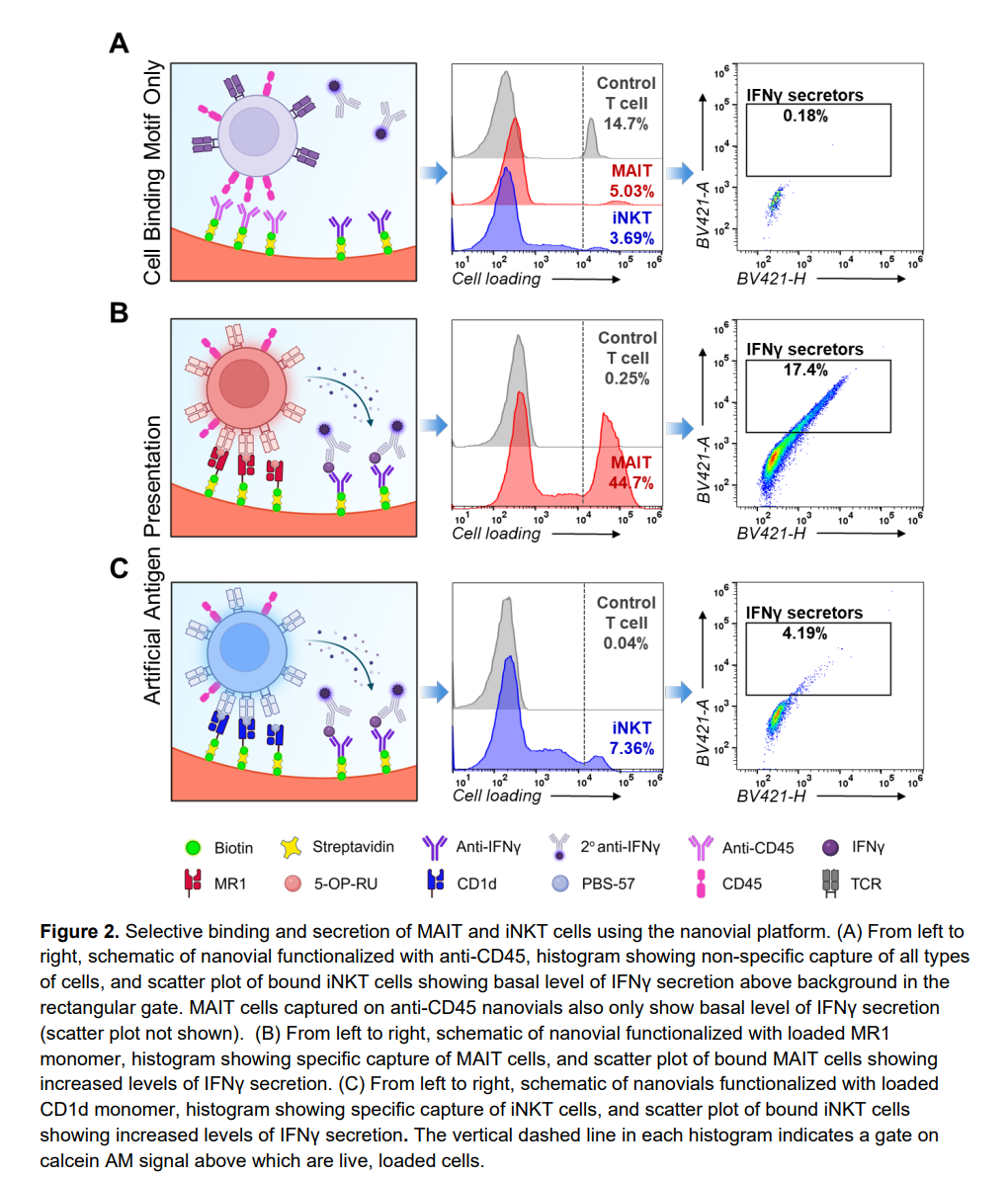A Nanovial-Based Platform for Functional Discovery of Antigen-Reactive TCRs from Unconventional T Cells
Citradewi Soemardy, Yan-Ruide Li, Yichen Zhu, Lili Yang, Dino Di Carlo
bioRxiv, August 2025
https://doi.org/10.1101/2025.08.06.668816
(Preprint)
Abstract
Unconventional T cells, such as mucosal-associated invariant T (MAIT) cells and invariant natural killer T (iNKT) cells, recognize non-peptide antigens presented by MR1 and CD1d, respectively, and play pivotal roles in immunity, allowing targeting of cells based on metabolic activity. Although components of the T cell receptors (TCRs) for these unconventional T cells are invariant, significant variability in the CDR3 regions still exist, opening questions as to how TCR sequence and function may be linked, and how to maximize the therapeutic potential of engineered unconventional T cells. Here, we develop a nanovial-based functional screening platform that enables high-throughput discovery of TCRs from unconventional T cells based on direct antigen recognition and cytokine secretion. By selectively labeling nanovials with MR1 and CD1d molecules displaying their cognate ligands, we achieve dose-dependent capture and activation of MAIT and iNKT cells from complex human PBMC samples comprising tens of millions of cells. Using oligonucleotide barcodes conjugated to nanovials encoding the antigen-presenting molecules and loading cytokine capture antibodies, we perform secretion-encoded single-cell sequencing to link TCR identity, gene expression, antigen specificity, and functional response. Applying this method, we isolate rare reactive T cells, recover their TCRs, and validate five novel MAIT TCRs. All five TCRs, when re-expressed in primary T cells, confer antigen-specific cytokine secretion and cytotoxicity. The top two TCRs were evaluated using an in vivo solid tumor model, demonstrating specific tumor homing and efficacy. This function-first strategy offers a powerful tool to uncover functional TCRs from unconventional T cells, yielding a 100% hit rate when secretion-based validation is included as part of the initial screen, unlocking new opportunities for cell-based immunotherapy.
Topics
Workflow Improvement, Cell Therapy, Cell Screening
Cell Types
Mucosal-associated invariant T (MAIT) cells, Invariant natural killer T (iNKT) cells
Secretion Targets
IFN-γ

